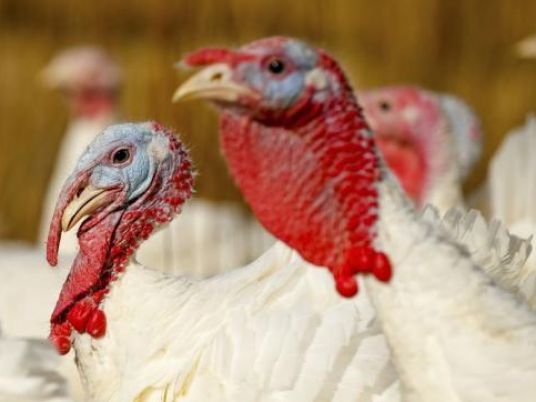
A tiny but growing number of the 46 million turkeys destined to be eaten in American this Thanksgiving can trace their lineage to the birds that graced the tables of the country's early settlers.
Cheaper, big-breasted turkeys full of the white meat consumers now crave have largely pushed out the historic varieties, but small poultry breeders are working to return the holiday's signature dish to its roots.
More than nostalgia, the movement seeks to preserve the genetic diversity of a famed holiday fowl, while also catering to foodies who prefer the robust taste of the heritage turkeys' dark meat.
"This is our historical foundation of our food," said Frank Reese Jr., a fourth-generation Kansas farmer considered the master of heritage turkey breeding.
At her homestead farm in rural North Carolina, Julie Gauthier butchered and dressed 14 heritage turkeys this week, plucking each feather by hand before selling the pastured birds fresh to customers who had placed orders as early as August.
The turkeys, also known as "Standard Bred," can take twice as long to grow to full size and cost as much as six times more per pound than those popularly sold in grocery store freezers.
"Heritage turkey is a superior product to a supermarket turkey," said Gauthier, a veterinary epidemiologist who also raises rare chickens, ducks and geese on her Wake Forest farm.
"They're much more flavorful," she added.
The fowl included Beltsville Small White turkeys, one of the rarest heritage varieties that Gauthier and a national conservation group are on a mission to save.
The eight-to-12-pound turkeys saw brief success in the 1940s and 1950s after being developed to meet the demand of smaller families, refrigerators and ovens, but were nearly extinct by the 1970s.
The Livestock Conservancy started a recovery program this year for the Beltsville Small White, using eggs and adult breeder birds donated by a research lab with one of the variety's few remaining purebred flocks.
Compared with the 46 million turkeys the National Turkey Federation estimates are eaten at Thanksgiving alone, only about 30,000 to 50,000 heritage turkeys are consumed each year, said Jeannette Beranger, who works at the Livestock Conservancy.
But the number of heritage breeding birds has increased after precarious lows in the 1990s, she said, and a core of enthusiasts are now interested in raising the animals.
Beranger has an idea to further raise the old-school poultry's profile.
"We've been chatting about how we can get a heritage turkey pardoned at the White House," she said.
